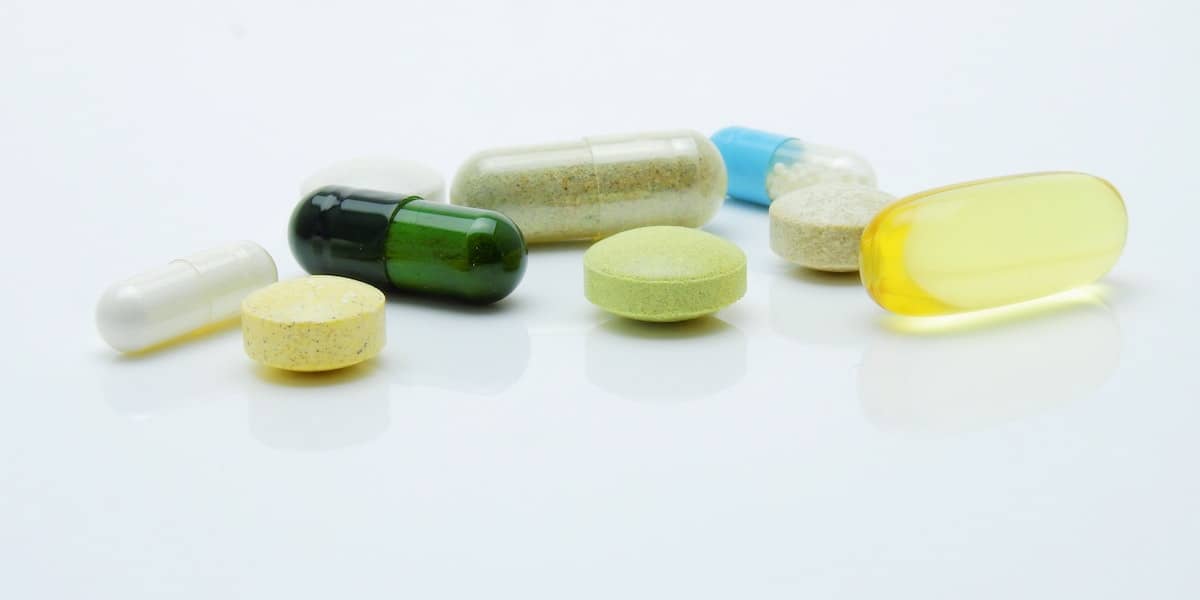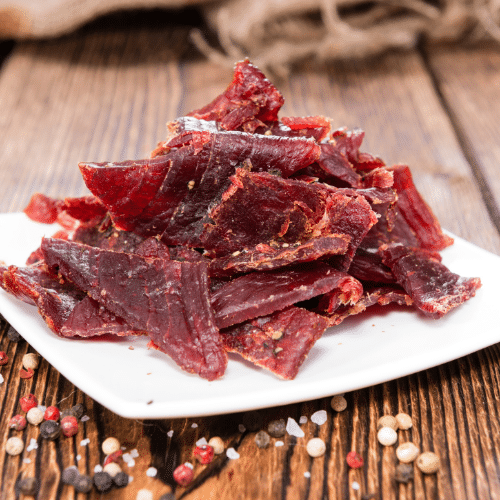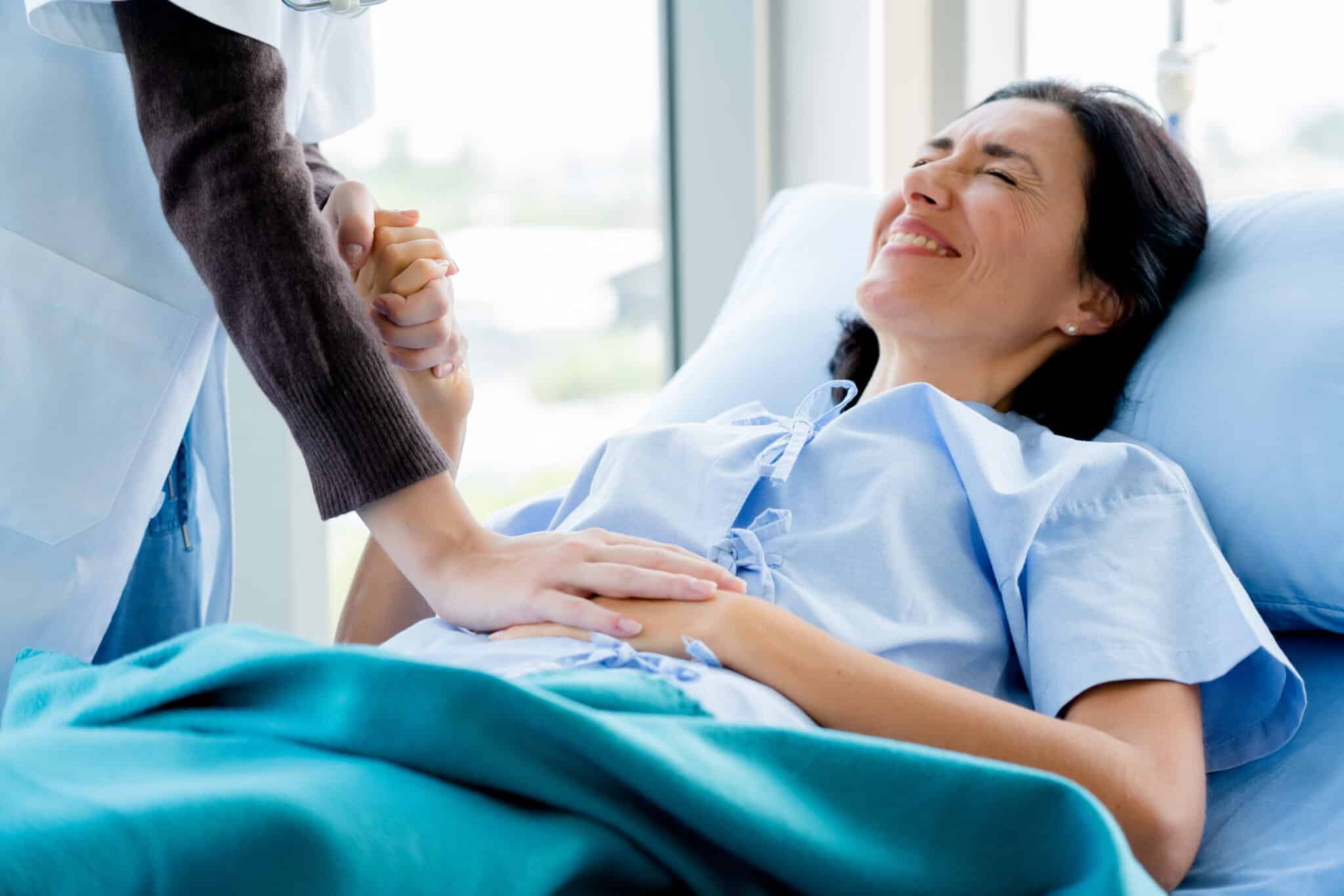Although women are advised not to consume anything from the sea while pregnant – mostly due to the presence of heavy metals and iodine – sea moss is one of the few sea foods considered safe to eat in moderation while pregnant.
Despite the name, sea moss or Irish sea moss is a type of seaweed and algae called Chondrus crispus. It is a spiny-edible plant that grows in tide pools and sea water on rocks, mainly in northern areas of the Atlantic Ocean.
They have many benefits for you both as a food and as a topical solution. As a food, sea moss has many nutrients, but should not be a replacement for prenatal supplements.
As a topical cream, it can help with several skin issues, which we shall discuss further in this article. First, let’s discuss its benefits, especially for pregnant women.
As an Amazon Associate, I earn from qualifying purchases. The links below may be affiliate links. Please read my disclosure policy for more information.
Is sea moss safe?
Sea moss will contain some mercury, as with all flora and fauna found within the sea. However, these levels are low and deemed safe to consume.
In fact, there is still less mercury in sea moss than what is found in tinned cans of tuna.
According to an article published in the National Library of Medicine, darker purple mosses contain high levels of anthocyanins. These are compounds found within the purple hue that are anti-inflammatory.
Therefore, this makes it beneficial to people who experience conditions that cause inflammation, not just pregnant women.
However, there is another type of seaweed called bladderwrack. As of yet, there are not enough studies to suggest this type is safe to consume while pregnant.
Therefore, it is best avoided, including if you choose to breastfeed.
Nutritional benefits of sea moss

Sea moss has many nutritional benefits and is even classed as a superfood. According to medicalnewstoday.com 2 tablespoons or 10 grams of sea moss contains:
- Calcium – 7.2 mg (milligrams)
- Magnesium – 14.4 mg
- Phosphorus – 15.7 mg
- Potassium – 6.3 mg
- Iron – 0.9 mg
- Zinc – 0.2 mg
- Copper – 0.02 mg
- Manganese – 0.04 mg
All these minerals have many health benefits that aid in the normal function of your body. Iron, for example, is needed to produce red blood cells for both you and your baby and carry oxygen around the body.
This is especially important while pregnant, as anemia is common in pregnant women who need to produce more blood than normal.
Potassium regulates levels of fluids and electrolytes throughout your body, which is especially important during pregnancy. Calcium is another mineral that’s even more important during pregnancy.
Many of these nutrients are depleted rapidly as the baby grows within the mother’s body, which is why a healthy diet and supplements are crucial during this time.
Other vitamins include vitamin C and D, with vitamin C being essential for the immune system, including bone and tooth health. Not enough of this vitamin reduces your body’s ability to absorb iron.
Vitamin D assists in regulating how much vitamin C your body can absorb.
Sea moss also contains vitamin A. This is one of the reasons sea moss must be taken in moderation, as too much of this vitamin can be harmful to a developing fetus.
Side effects

As discussed, while sea moss has a multitude of benefits, there are some factors to be cautious about. As previously mentioned, too much vitamin A can be harmful.
You can find enough of this vitamin in your diet naturally without the need to take extra doses.
It is the reason why most prenatal supplements do not have vitamin A present, or have very low levels in other forms such as beta-carotene.
Sea moss also contains iodine. In moderation, this is fine. It helps with the normal functioning of your thyroid, which is responsible for your metabolism and growth.
It also does the same for your developing baby. But too much iodine causes hypothyroidism or an underactive thyroid.
Both of these conditions can lead to complications while you are pregnant.
Brown seaweed contains higher levels of iodine and you are advised to avoid this while you are pregnant. Red seaweeds and Irish sea moss do not contain as high levels and are considered a safer option.
However, as always, moderation is important.
If you experience any of these symptoms while taking sea moss, you must consult your doctor:
- Itching or irritated skin
- Burning or reddening of the skin
- Nausea
- Vomiting
- Diarrhea
Also, as it grows in the sea, it can absorb higher levels of heavy metals such as mercury. Taking too much sea moss can result in a toxic build up within your body.
This build up of metallic toxins can pass through the bloodstream and into your baby.
Therefore, it is important to monitor how much sea moss you consume each day or week.
Types of sea moss

You can consume Irish sea moss in several different ways. Below we shall discuss a variety of ways you can have this food as part of a healthy diet.
Supplements
The main one and most obvious is in the form of supplements taken orally in the same way as your prenatal tablets. As discussed above, some tablets contain brown seaweed and sometimes kelp.
Both of these have higher levels of iodine.
Check the labels of supplements carefully and only buy from reputable manufacturers. Take the supplements in moderation, perhaps even taking them only every other day.
However, some experts advise avoiding sea moss in tablet form while pregnant, as the heavy metals can still build up in your system over time and harm your unborn baby.
There is no real replacement for a good quality prenatal supplement and this should be your main source of vitamins and minerals alongside a healthy diet.
Powders
Another easy way to consume this moss is in powder form. You can buy this in most health food stores and add it to a variety of foods, like soups, smoothies, cereal, yogurts and even stews.
Again, check the serving suggestions regarding how much to add into food so you are not consuming too much. This also applies to lactating mothers.
Gels
Did you know that Irish moss is used as a thickening agent in some foods, such as smoothies, ice creams, and even baby formula?
As a gel, it is typically sold in jars and ranges in color from a light beige to a greenish yellow. As with powders, you can add it to drinks to thicken them or to simply add some extra nutrients.
You can even add it to warm drinks like herbal teas.
You can also buy dried sea moss online and make your own gel. Be sure to only buy from reputable sellers as some less reputable ones won’t sell good quality moss.
Around 2 cups of dry sea moss will make approximately ½ gallon of gel. Clean the dried moss and soak it in spring water for 12-48 hours.
Drain off the water and then add it to a blender with some clean water. Blend until smooth and place in a jar in the refrigerator. As it sets, it forms a thick gel.
As before, check the serving suggestions for store-bought ones and seek serving suggestions online from authoritative websites if you make your own.
Take note of how much you are consuming, as gels tend to be more concentrated than fresh or dried sea moss.
Topical creams
Not only does topical creams have many benefits as a food supplement. You can use it on your skin to help with minor skin issues.
Used regularly, some people find it has improved the condition of their skin along with the signs of aging.
It is suitable for all skin types and so should be great for mothers experiencing oily skin or very dry skin while pregnant.
It has oil-balancing properties and is antibacterial, making it great for treating minor wounds and helping fight against outbreaks and blemishes.
Can Irish sea moss reduce morning sickness?
Although there is no concrete evidence that suggests sea moss can help in reducing the symptoms of morning sickness, it does contain calcium and vitamin B6, both thought to decrease nausea.
However, sea moss does not contain high enough levels to help with the dreaded morning sickness. Some mothers do find it helps though, and if you are one of them, then this can only be another benefit the superfood has.
Conclusions

To sum up, Irish sea moss has a good deal of health-giving benefits. Just before and while you are pregnant, you should always consult your doctor before adding this to your diet.
This also applies if you choose to breastfeed.
It is also important to know that every mother is different and what works for one may not work for another. This is certainly true for the last point made regarding morning sickness.
Before you make a decision, always do your research before taking sea moss so you can decide if it is the right choice for you.








